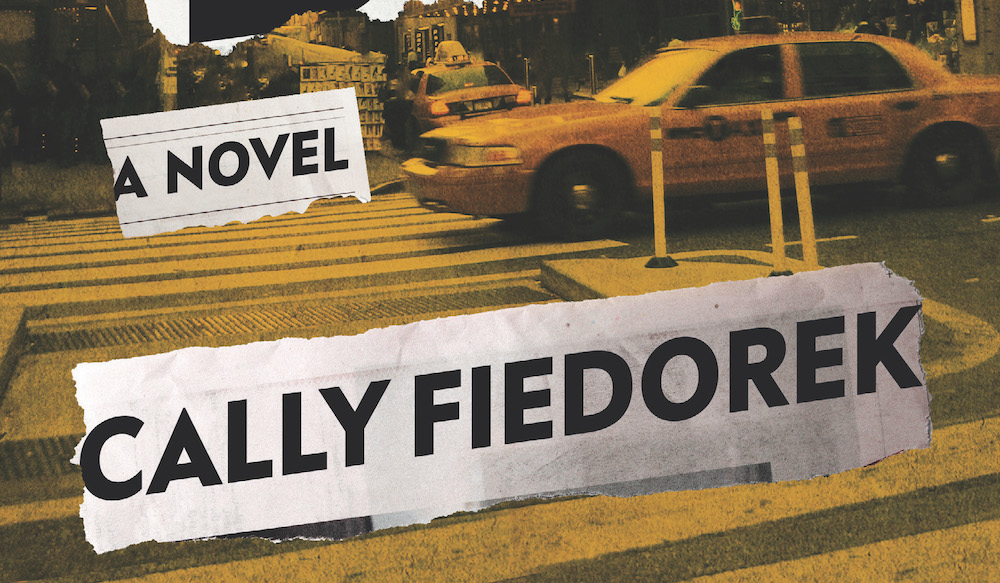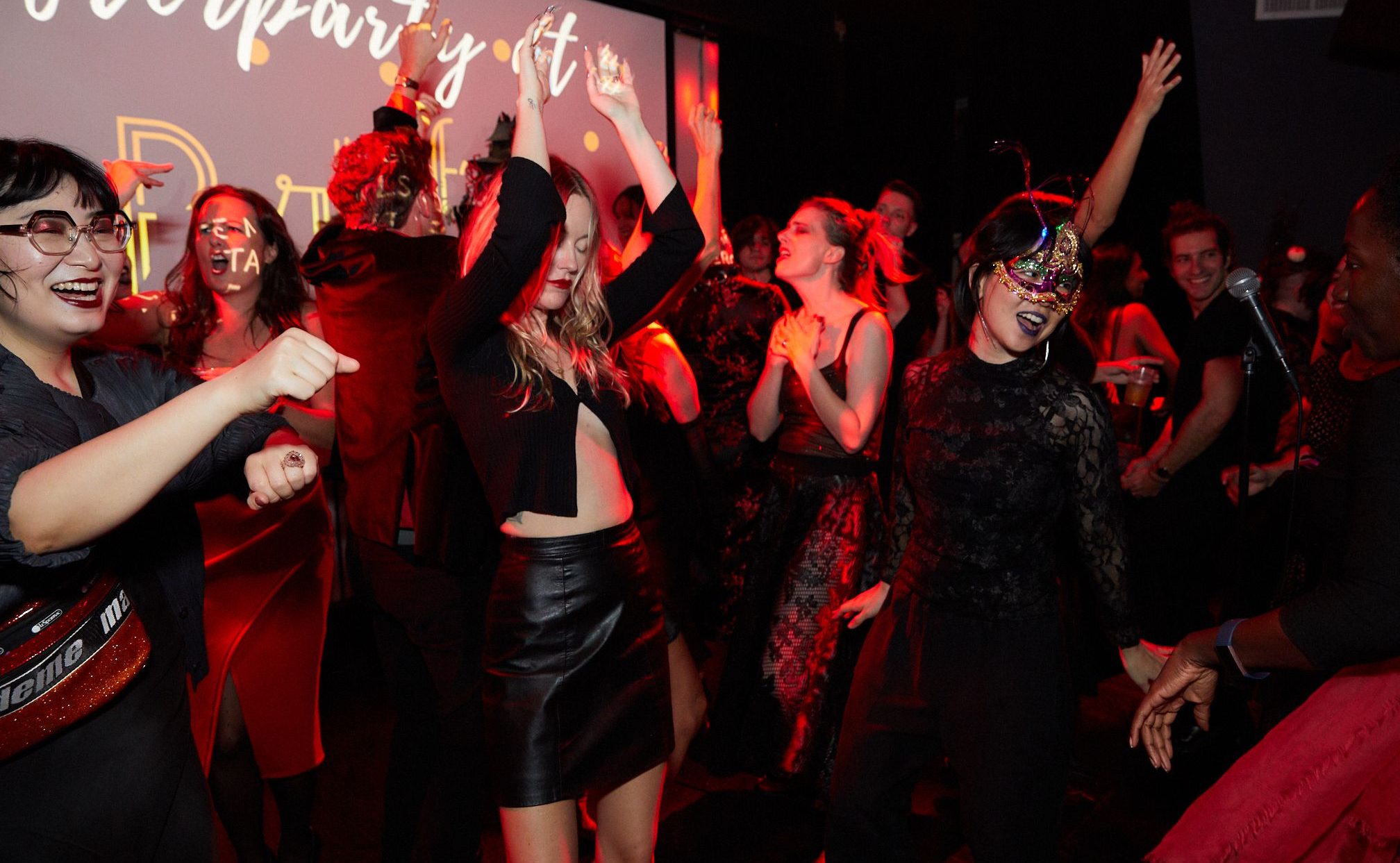Interviews
Rachel Kushner, Rivka Galchen & Hari Kunzru in Conversation, from Upstairs at the Strand

The Strand, with its “18 miles of books,” has been a New York City institution going on 90 years, and in that time the bookshop has hosted its share of literary luminaries, lately as part of a conversation series in its fifth floor Rare Books Room. This week marks the release of an anthology of those conversations: Upstairs at the Strand, from W.W. Norton & Co. Three years ago, Rachel Kushner, Rivka Galchen, and Hari Kunzru met at the Strand to talk with Mónica de la Torre about new work, superstitions and harnessing everything you know for fiction. Today we take a look back at that conversation, with an excerpt from the new book.
Mónica de la Torre: I wanted to start by asking you about your experience of temporal shifts in the writing process. Can you speak about your work when it’s in the incubation process?
Hari Kunzru: At the moment, I’m doing some screenwriting, and you’re forced to talk about everything all the time with people who don’t seem to share very much with you. And so you’re always trying to reach your idea across a table. There seems to be an increasing amount of that in the fiction-publishing industry as well. I started something, and was kind of happy to talk about it, but I am now feeling that I hollowed it out in some way by doing that. Now I started something else and I’m not talking about that, and it feels good, it feels precious.
de la Torre: You’d rather not to talk about something that’s in its early stages because you feel that you might jinx it?
Kunzru: A novel certainly takes so long that it has to be a project that you can live inside for a period of years, at least a couple. It has to be a machine that can somehow process all of your stuff, your experiences during that time, even if it’s in a very oblique and coded way. I think with oversharing you risk that it doesn’t function. I’m quite interested in privacy.
Writers construct in writing. It’s hard to improvise.
Kushner: After you finish a book for a publisher you’re still inside a pretty endless process of copyediting and proofreading, etc. So I feel like I was with Flamethrowers in a continual way basically until it came out, at which point I had to begin to talk about it. You have to create a sort of discourse that then you utilize over and over again, as you’re asked questions. But that only happens through experience. Having done it before for a first book didn’t at all prepare me for the second. Writers construct in writing. It’s hard to improvise. With a book, even though all of the ideas in the book are mine, and I had total control over the novel, there are so many different things that go into writing a novel at different moments, and the temporality of it is protracted, the writing of it. When it’s time to give an encapsulation of all your different thematic interests and the materials that were important to the book, I forget sometimes what inspired me. I have to make cheat sheets. Eventually you learn how to talk about your own book, but the frightening thing about this is that then you can go on autopilot. Right now I’m on a book tour and I feel like I could accidentally sell myself a pair of overpriced shoes or something.
Kunzru: Isn’t that the purpose of the book tour? To alienate you so much from the thing that you’ve written that you feel forced to write something else, in order to feel good about yourself again?
Kushner: When I talk about a book, it’s already long written and I’ve already moved on to the next, which I wouldn’t talk about. I’ve looked at what other novelists have done, and I read authors saying, “I’m not talking about that.” It’s either because it’s bad luck, or it deflates some of the energy.
Galchen: Often it seems like you’re choosing between being true and accurate to what you’re doing, and being a nice person, answering people’s questions. It’s a tension. I imagine you start feeling like you have a bit of a shtick, but the shtick is the friendly thing to do. So, it’s a little bit of a bind.
Kunzru: I really admire writers who cannot go along with that. I’m dreadfully prone to taking whatever stupid question it is, and trying to make something out of it. You end up feeling terrible.
de la Torre: My next question is about repurposing skills that you’ve learned in other environments, in order perhaps to add realism to a novel. For instance, Rachel, you are also an art critic and your descriptions in Flamethrowers, not only of artworks, but also of particular scenes, are so realistic and so believable that I often found myself wondering if it wasn’t a roman à clef. I wondered if you weren’t disguising actual artists under different names. Maybe you’ve done it, too, Hari, you were a music editor, you wrote about technology. In your case, Rivka, you’re an M.D. in psychiatry. So, I wanted to ask you all, is it deliberate that you bring those skills to the novel? Does it feel slightly subversive, perhaps, that you’re taking what belongs in the realm of your day job and bringing it into the realm of fiction?
Kunzru: I wanted to be a fiction writer before I wanted to do anything else, like write journalism. It was very accidental that I wrote about technology. At a certain point, in my early twenties, it turned out that my only marketable skill was knowing about the Internet. I was working for Wired at the point when it was a sort of Day-Glo-orange cult based in San Francisco. They would send me off to talk to people who would tell me that the future was being physically instantiated somewhere in the Valley. These extraordinary characters, who were very alien to my way of thinking. I remember asking my boss why we were always writing about these wealthy people who are making the future, or so they told us, but what about everybody else? I was told very sternly that there are no have-nots, only have-laters. I realized that everybody was insane, and I needed to write a novel about it. I was given a lot of material from that, by accident, really, but there’s a fairly easy flow for me across the boundaries between fiction and nonfiction. I like doing journalism partly because it gets me out of the house. It’s quite a relief not to be inside my head. And, yes, you get a little window onto other kinds of life.
…for me the novel is a challenge that requires every single part of myself.
Kushner: Every writer is different, but for me the novel is a challenge that requires every single part of myself. Therefore, every single thing that I know about the world is going to be summoned in some way by whatever I’m working on. I think a lot of writers are like that, and I think across genre, too. It’s like Anne Carson, by no accident, will write about Monica Vitti, or about Sappho. Well, she’s a classicist, not that Monica Vitti has to do with classicism. But I was just thinking about different things she’s interested in and that she’ll incorporate into her poetry. I’m not at all comparing myself with Anne Carson, she’s legitimately a classicist; I am not legitimately anything, really, except for a fiction writer. I do write about art on occasion, and have done so for many years now, but I don’t really consider myself an art critic, like a tastemaker type of person, and nor am I an art historian, because I’m not trained that way. Still, I’m interested in contemporary art and culture, it’s a knowledge that I got in a semi-autodidactic but organic fashion, after having been assigned various pieces.
When it came time to write this novel, it was no accident that I wanted to write a book that was partly set in the art world of downtown New York in the seventies. It was something that I’d picked up a few ideas about just along the way. But it’s definitely not a roman à clef. The characters are fictional, entirely constructed. I do like the cameo, it’s fun to place a real person in a scene — like John Chamberlain, drunkenly moving through the room. It could just give a tiny reminder for the reader that they’re in a real space.
But I tried to downplay the art world in Flamethrowers. I don’t like to read novels about the art world where there are long descriptions about the character’s conceptual artwork. You can tell that the writer is making it up and kind of getting lost inside of the writing of the fictional stuff that the character makes. It comes across to me as precious. So I just tried to signify that these people make works, but did not go too in-depth into what they made. For me, part of the great fun and the challenge is that writing summons everything you know. Still, you do not want to be a Little Miss Know-It-All.
Galchen: What were some of the images that were important to you while you were working?
Kushner: I collected a lot of images while I was working on Flamethrow-ers. The book is about the seventies, but I’m also interested in futurism and its relationship to war, and I’m interested in motorcycles and technology and the way that speed was introduced via war. One of the first images that I put up was of a soldier from World War I riding a motorcycle with a really crazy sidecar contraption on it that was shaped like a bullet. There was another guy in the sidecar who looked like he was kind of his amanuensis. He had a typing machine and was taking notes. That sounds kind of precious! I found the picture online and just put it up in my office. I did that with several others. The image that’s on the cover of my book was another one. You can print things out on a black-and-white printer and it somehow looks okay. I had all kinds of images up on the wall while I was writing. Stills from films, like the last by Guy Debord, In girum imus nocte et consumimur igni, with all of those different pictures that he used, and the comments that he made over the images. That right there is a kind of crystallization of language and image that he put together. Debord was a real master at combining words and images. A lot of that film is just still after still, with his commentary over it.
There’s a whole range of things that I worked with. Sometimes an image for me is just an image in my mind. For example, I was thinking about the blackout in New York City in 1977, and the hostility in the press to the looting and criminality that went on. Then I was thinking about a march in Rome earlier that year, on March 12th, 1977. I thought about crowds that fill up the street, following a certain logic, but in an unexpected manner. In New York no one knew that the electricity was going to go off, and in Rome no one knew a student was going to be killed by the police in Bologna the day before, which is what precipitated the outpouring of people to the streets, who came from all over Italy. I thought about those two events, and to me those were images, in a way. They have some similarity.
Kunzru: I often have several things that I know go together, but don’t rationally go together. For example, in my last novel I did not know why computer modeling and the stock market should have anything to do with the Mojave Desert, but they had. I then had to write to find out what that connection was.
Kushner: Did you look at images while you were writing about those cult followers who lived in the desert?
Kunzru: There’s a good book called Spaced Out. It’s about utopian architecture in the 1960s, and it has a lot of visual references to western United States communes. I also have a friend in San Francisco whose art practice revolves around that, so she’s always finding things online and sending me pictures of people at Morning Star, looking like they hadn’t had a bath.
Kushner: Did you print them out, too, and put them up in your office?
It just says “oppose book worship” above my screen. And that feels like a useful thing to remind myself.
Kunzru: I’m trying to remember what I had up at that point. I’ve moved around a lot in the last few years, but I definitely had that thing of papering my walls with my sort of projection of my book. Now, for the last two years the only thing I’ve had up in my writing space — it’s a sort of gag — is one of Mao’s speeches. It’s published as a Peking Press pamphlet with the cream covers, and it’s called “Oppose Book Worship.” It just says “oppose book worship” above my screen. And that feels like a useful thing to remind myself.
Galchen: I wonder about this methodology of not really being in control, where you have a couple of interests that just seem to sit on the surgical table together, whatever it is, the sewing machine and the umbrella. What is that like in the composition process? It sounds like both of you feel most in control if you are not in control. If you don’t know why you’re interested in Italy in the seventies and New York in the seventies, or machines, what does that make your daily process like?
To me, the work of the novel is to not be in control, and to be moving at a patient pace towards a future that is not a foregone conclusion.
Kushner: To me, the work of the novel is to not be in control, and to be moving at a patient pace towards a future that is not a foregone conclusion. I want there to be a certain quotient of mystery always, when I’m writing. Maybe halfway through the book I know how it’s going to end, and it’s a matter of getting there, but there are still things that are going to happen that I haven’t foreseen. For me, the process of the novel and the challenge of it is partly to figure out how these two realms are related. I did not want things to over-relate in a very reducible, clean, and very symphonic way. Like, “Oh, it turns out that she’s the cousin of the man who . . .” I don’t mean to denigrate that, but it’s not my style as a thinker or reader or writer. I want things to be more open, and to think about cities, and history, and events, and have one person who kind of just moves through these landscapes. I wanted the registration of how they echo one another to take place in the mind of the reader, not so much in the page.
For me it’s just time, too. You have a few years to figure these things out. I’ll work on one small part, and then another. It’s like moving tanks to the front lines. You can’t get there in one day when you’re moving provisions.
Excerpted from Upstairs at the Strand: Writers in Conversation at the Legendary Bookstore, edited by Jessica Strand and Andrea Aguilar. Copyright © 2016 by Strand Books. Published by W. W. Norton & Company, Inc. Used with permission. All rights reserved.









